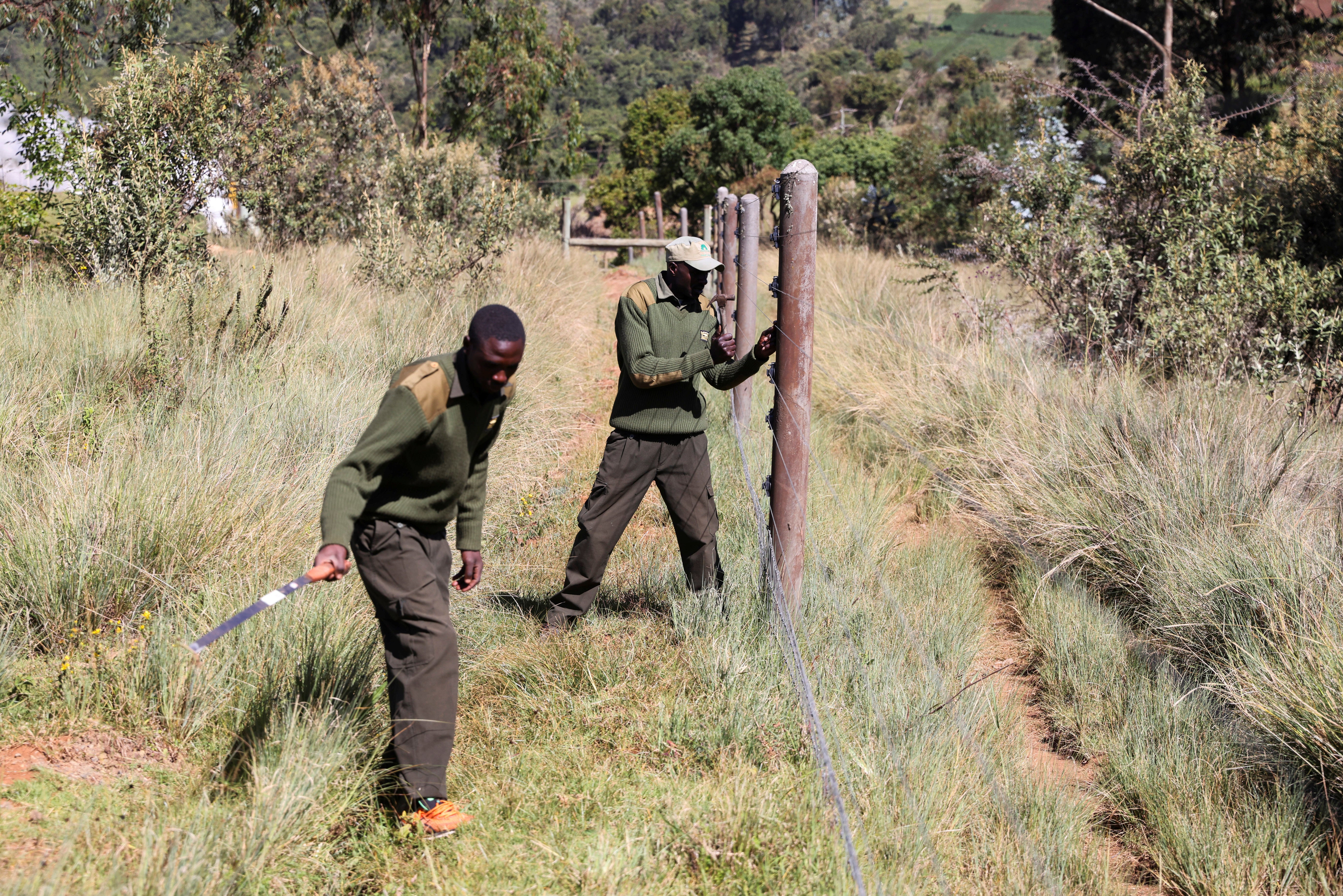Kenya uses electric fences to protect forests from humans
The project is attempting to prevent illegal logging and charcoal burning

Your support helps us to tell the story
From reproductive rights to climate change to Big Tech, The Independent is on the ground when the story is developing. Whether it's investigating the financials of Elon Musk's pro-Trump PAC or producing our latest documentary, 'The A Word', which shines a light on the American women fighting for reproductive rights, we know how important it is to parse out the facts from the messaging.
At such a critical moment in US history, we need reporters on the ground. Your donation allows us to keep sending journalists to speak to both sides of the story.
The Independent is trusted by Americans across the entire political spectrum. And unlike many other quality news outlets, we choose not to lock Americans out of our reporting and analysis with paywalls. We believe quality journalism should be available to everyone, paid for by those who can afford it.
Your support makes all the difference.Nearly 300 miles of electric fencing has been constructed around forests in Kenya in an attempt to protect wildlife from being hunted, prevent illegal logging and save water sources.
The Kenyan environmental group Rhino Ark Trust have put up 450 km (280 miles) of electric fence around two key areas where rainfall feeds into the country’s rivers.
This is part of a project to try and save 570,000 hectares of mountain forests, that the organisation says are part of the African country’s key rain catchment areas.
The fences have been installed to curb rampant logging and charcoal burning, which in recent years have affected the forests and have “critically depleted the forest cover,” according to the Rhino Ark Trust.
Animal poaching has also taken its toll on the forests’ wildlife, with the Rhino Ark Trust saying that animals in the Eburru Forest have been “decimated by poaching/bushmeat hunting and human encroachment.”
This is not the first time an electric fence has been used to keep humans out of woodlands and forests in Kenya. In 2014, the Rhino Ark Trust financed a 43 km (about 27 miles) long fence around the Eburru Forest in Kenya’s Rift Valley.
Fences are installed with alarms which alert rangers to any intruders. According to Joseph Mutongu, the fence community manager, the installation of the fences has cut charcoal burning and logging in the area to almost nothing, reported Reuters.
Data from the Kenyan ministry of the environment showed that forest cover in the country was about 7 per cent in 2015. Now Kenya is aiming to increase this to 10 per cent by 2022, reported Reuters.
This is in an endeavour to reach the standard set by the United Nations, who highlighted how important forests are in fighting climate change. The organisation said in a report: “Forests contribute substantially to climate change mitigation and adaptation and in conserving biodiversity.”
Private conservation groups are key in helping to finance projects such as the one in Eburru, with fences preventing destruction of trees and the killing of animals.
Meanwhile, those who live locally to Eburru are not being shut out of the forest and are instead being encouraged by the Rhino Ark Trust to harvest honey and wild fruits from the land.
Maseto Kusen, a member of the local Ogiek community told Reuters: “This was our only source of livelihood. We were greatly dependent on honey, meat and wild fruit.”
Farmers in the area also believe that a decrease in logging and charcoal burning is helping to ensure their crops get adequate rain.
Local farmer Joseph Kariuki said that farmers in the area believe that the trees will help to bring rain. He explained: “It is green everywhere,” adding, “the environment has really changed.”
Additional reporting by Reuters
Join our commenting forum
Join thought-provoking conversations, follow other Independent readers and see their replies
Comments